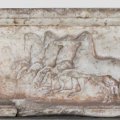Brisbane-based company Advanced Ceramics Development (ACD) has completed commissioning trials on a prototype semi-automated instrument to produce high temperature superconductor powders.
The instrument is ready for shipment to customers in Japan, where it has been marketed and sold to a third party for an undisclosed sum by Enya Systems Ltd, a medium-sized systems integration company and partner in the development project.
Two years ago UniQuest Limited - the University of Queensland's technology
transfer company and parent company of ACD - signed twin agreements to
bring high quality, high temperature superconductor (HTS) powders developed at the University to the world marketplace.
UniQuest entered into licence agreements for commercialising the powders and products, with the Energy Research and Development Corporation (ERDC) in Australia and Enya Systems Limited in Japan.
ACD director Professor Ian Mackinnon said the project would enable Australia to become a world leader in producing state-of-the-art high quality superconducting powders. This would have many downstream benefits for Australian industry and would establish the University of Queensland as a world leader in advanced ceramic materials, he said.
The superconductor technology was initially developed in a major project funded by the Commonwealth Government's R and D Syndication scheme, packaged by BT Australia.
'The research underpinning this development has been underway since 1990,'
Professor Mackinnon said.
The Enya-funded project has led to the building of a sophisticated instrument capable of manufacturing very high quality superconductor powders, semi-automatically.
The prototype instrument for producing bismuth superconducting powders in continuous small production batches, was designed by the ACD research and development team, and built by ChemEng Contracts, a Melbourne chemical engineering company. The production facility generates enough powder to make superconducting tapes for pilot plant trials of the powder-in-tube (PIT) tape production process.
Superconducting powder-in-tube tapes are being trialled in several international experiments for underground cable power transmissions. Japan is a world leader in superconducting cable production. The material is also being tested in magnetic windings and superconducting magnets.
Professor Mackinnon said each batch produced by the semi-automated instrument had consistent high quality composition, with the same bulk physical properties and reliability. The instrument could be adapted to produce other superconducting compositions or other ceramic powders. Should the research team wish to diversify, members had now developed the expertise to construct automated systems which could also produce other types of high-tech materials.
He said the project with Enya Systems Ltd opened the door for ACD to market Australian technology and R&D capability to a large number of small and medium-sized Japanese and Asia -Pacific companies eager to find sources of innovation for developing new products.
In addition, the value of this type of development project lay in the emergence of a new manufacturing capability for Australia and the potential to establish new high-tech industries based on a worldwide market as the technology develops to maturity.
With globalisation of many industries inevitable, the development of manufacturing capacity in newly-emerging industries such as superconductor materials, instrumentation and value-added superconductor products would become vital to Australia's long-term wealth-generation.
Professor Mackinnon said the commercial value of Australian R&D, exemplified by this product development in superconductor processing instrumentation, was now recognised throughout the Asia Pacific region.
'This is another demonstration of ACD's skill and expertise in taking technology from concept to laboratory practice to engineering outcomes and to a final product,' he said.
The superconductor powder production instrument was developed by a team including Professor Mackinnon, Dr Peter Talbot, Brian Williams, David Nakon, Dr Jose Alarco, Kelly Tomlins, Adrian Treloar, Felix Lo, Dr Toru Yamashita and project manager Sumita Jordan.
For further information, contact Professor Mackinnon, telephone (07) 3365 7907.
.jpg)



